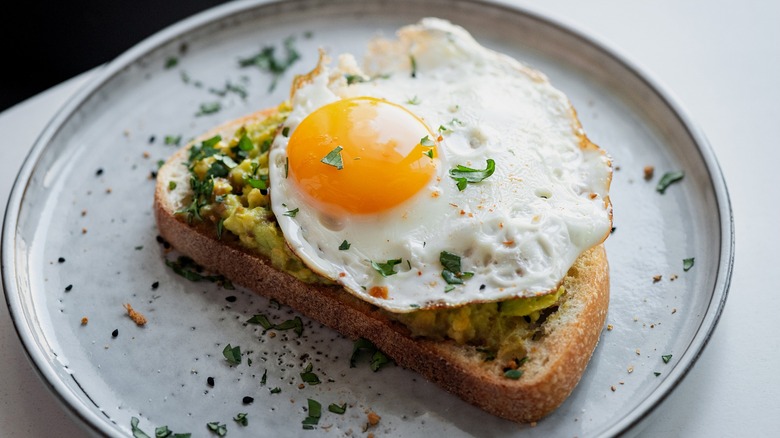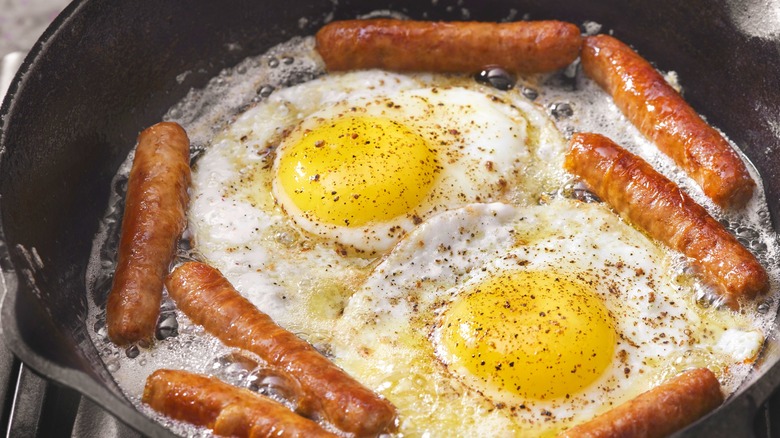For Fried Eggs With Richer Flavor And Golden Edges, Skip The Oil And Use This Instead
If you want to cook restaurant-quality fried eggs at home, try using heavy cream instead of oil or butter. To make heavy cream–fried eggs, all you need to do is pour a layer of the cream onto a cold pan, plop the raw eggs on top, and turn the heat on high enough to make the cream boil. As long as you follow the usual tips for making a perfect fried egg, you'll end up with some of the most indulgent eggs you've ever cooked.
This works because heavy cream is an emulsion of water, milk fat, and milk solids. When you boil the cream, the water evaporates and the fat molecules start to move faster. This creates ideal conditions for those molecules to collide with one another and form larger clusters, which in turn causes the fat to break from the milk solids. It's this separation that makes cream-fried eggs so decadent.
As the eggs cook in the fat, the milk solids will bind with the egg whites and give it a richer texture. The solids will also start to brown from the heat, creating a thin layer of nutty and savory flavors at the bottom of the eggs. The sugars contained in the milk solids will also caramelize, giving your eggs golden, slightly sweet edges. The end result is fried eggs that taste like they were infused with the complex, irresistible flavors of brown butter.
Heavy cream makes eggs taste more buttery than actual butter
The brown butter flavor in cream-fried eggs comes mainly from the higher concentration of milk solids in heavy cream compared to butter. These solids include proteins and sugars found in both ingredients, except in different ratios. As they cook, they develop the nutty notes, depth, and sweetness that we associate with brown butter.
What might surprise most is that all this flavor comes from less than 3% of the butter you use. Salted butter is composed of about 81% fat and 16% water; proteins and sugars make up less than 1% combined. While the high fat content gives butter its richness, the rest of its flavor profile comes from the relatively small amount of salt and milk solids it contains.
In comparison, heavy cream is about 2% protein and 3.8% sugars. This gives it more than six times the amount of these milk solids, which is why eggs fried in cream taste so intensely buttery. They don't lose much in terms of richness, either; heavy cream is 35.6% fat, and eggs can only absorb so much to begin with. Because of this, frying eggs in heavy cream is essentially like frying them in concentrated butter, giving you a lot more flavor in the process. While they're incredible on their own, you can also season your fried eggs with toppings like chili crisp or paprika for variety.

